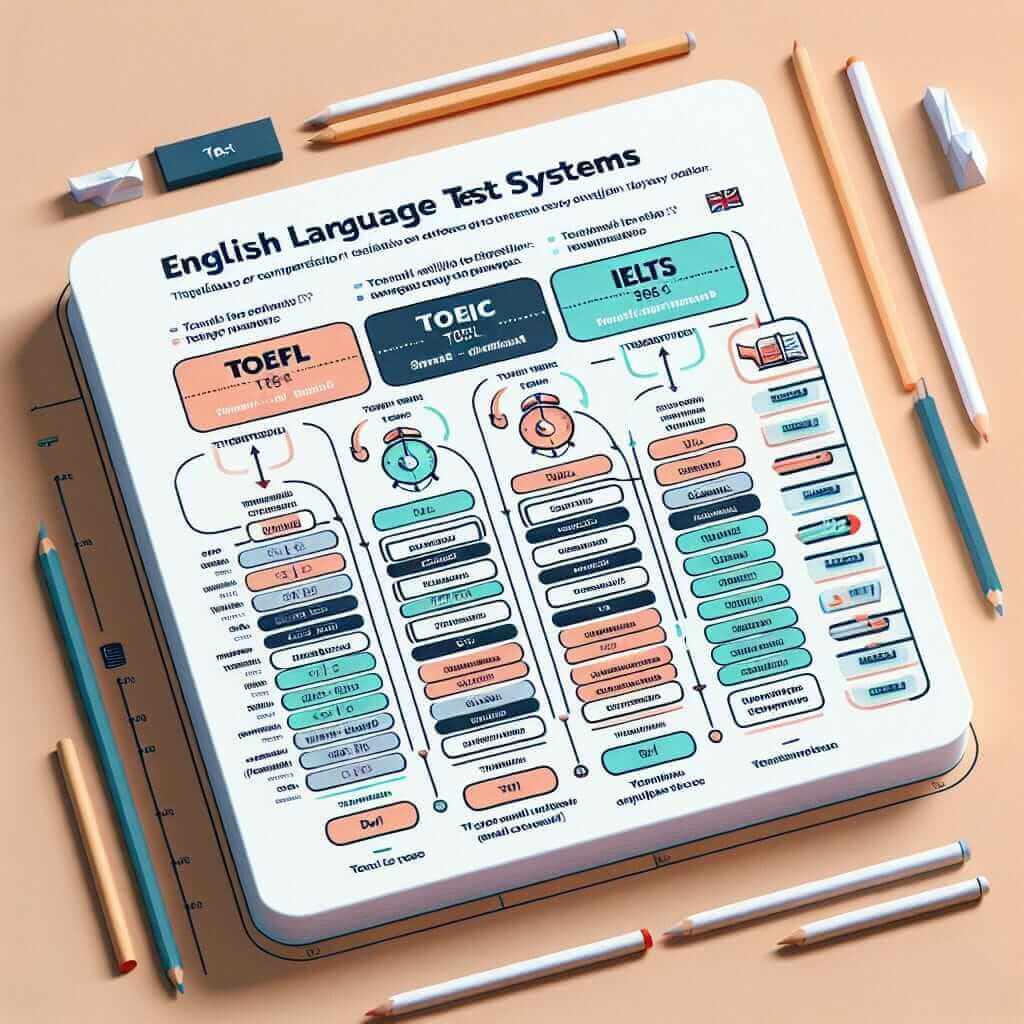Understanding the Importance of English Proficiency Tests
In an increasingly globalized world, English proficiency has become a valuable asset. Whether for academic pursuits, professional advancement, or personal growth, demonstrating your English skills can open doors to countless opportunities. This is where English proficiency tests like TOEFL, TOEIC, and IELTS come into play. As an IELTS instructor with over two decades of experience, I’m here to guide you through these prominent tests, outlining their nuances and helping you choose the right one for your goals.
Demystifying TOEFL, TOEIC, and IELTS
TOEFL (Test of English as a Foreign Language)
Designed to assess the English language proficiency of non-native speakers aspiring to study at universities and colleges where English is the medium of instruction.
Key Features:
- Focus: Academic English skills (reading, listening, speaking, writing)
- Format: Primarily internet-based (TOEFL iBT)
- Scoring: Scores range from 0-120, with higher scores indicating greater proficiency.
TOEIC (Test of English for International Communication)
Aimed at evaluating English language skills in workplace contexts, particularly for individuals seeking employment in multinational companies or industries requiring international communication.
Key Features:
- Focus: Everyday and business English communication (listening and reading)
- Format: Paper-based and computer-based options available
- Scoring: Scores range from 10-990, with higher scores reflecting a stronger command of English in professional settings.
IELTS (International English Language Testing System)
A globally recognized test that assesses English language proficiency across a wide range of contexts, including academic, professional, and immigration purposes.
Key Features:
- Focus: Evaluates English language proficiency across four modules: Listening, Reading, Writing, and Speaking.
- Format: Available in two versions: Academic and General Training.
- Scoring: Employs a band score system ranging from 0-9, with 9 being the highest level of proficiency.

Choosing the Right Test
The choice between TOEFL, TOEIC, and IELTS hinges on your specific needs and aspirations.
- For university admissions: TOEFL or IELTS Academic are generally preferred.
- For career advancement: TOEIC or IELTS General Training might be more suitable.
- For immigration purposes: IELTS is often the preferred choice.
Tips for Success
Regardless of the test you choose, thorough preparation is crucial. Here are some pointers:
- Familiarize Yourself with the Test Format: Understand the structure, question types, and time limits.
- Develop Strong Language Skills: Focus on improving your vocabulary, grammar, pronunciation, and fluency.
- Practice Regularly: Utilize practice tests, sample questions, and language learning resources.
- Seek Expert Guidance: Consider enrolling in a reputable test preparation course or working with an experienced tutor.
Conclusion
Navigating the world of English proficiency tests can seem daunting, but understanding the key differences between TOEFL, TOEIC, and IELTS is the first step. By carefully assessing your goals, preparing strategically, and seeking appropriate guidance, you can confidently approach your chosen test and achieve your desired results. Remember, achieving fluency is a journey, and every step you take brings you closer to your language learning goals.